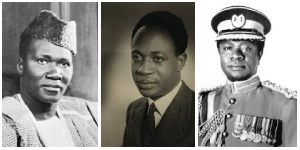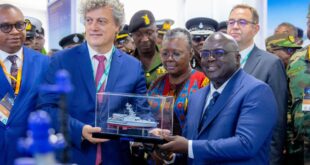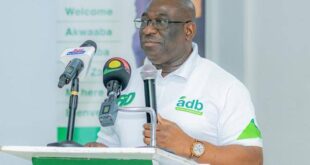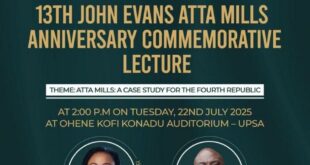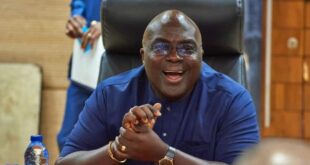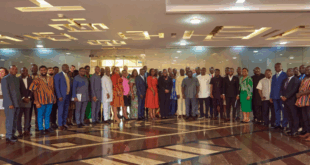The Fight Over Nkrumah’s Remains: On April 27, 1972, Kwame Nkrumah, the deposed President of Ghana and a great Pan-Africanist died in Bucharest, Romania after six years in exile in Guinea far away from his birthplace of Nkroful at the age of 62.
Osagyefo Dr. Kwame Nkrumah arrived in Conakry, Guinea after being invited by Sékou Touré just after the Military Coup that unconstitutionally ousted his Government from Power. Colonel Ignatius Acheampong, leader of the Ghana’s military junta which seized power from Prime minister Kofi Busia in January 1972.
The death of one of Africa’s most prominent personalities normally would have occasioned a dignified reaction from the two major parties concerned:
President Sékou Touré of Guinea, who had granted Nkrumah political asylum in his country following the latter’s removal from power
Colonel Ignatius Acheampong, leader of the Ghana’s military junta which seized power from Prime minister Kofi Busia in January 1972. There began instead a macabre quarrel between the two over the final resting-place of the ex-President’s remains.
Colonel Ignatius Acheampong desired that Kwame Nkrumah ’s body be returned to Ghana where, he said, the former President would be given a dignified burial.
Madam Elizabeth Nyaniba, aged mother of the deceased President, made an impassioned plea to President Sékou Touré to allow the body to be returned to Ghana: “I want to touch the body of my son before he is buried, or I die.” She also indicated that she would like her son’s body embalmed and kept permanently on public display the way Lenin’s body is preserved. Sékou Touré would not consent, however—at least not until he had extracted from the Ghanaians important concessions which would redound to his personal profit. And, since the Romanians had sent the body to Conakry, the Guineans were in a strong position to dictate terms.
Press reports shortly after Kwame Nkrumah’s death announced that Toure had attached four conditions to the return of the ex-President’s body to Ghana:
a. Nkrumah’s complete rehabilitation in the eyes of the Ghanaian people (lifting all charges that had been pending against him)
b. Liberation of all of Nkrumah’s partisans still held in Ghanaian jails
c. Removal of the threat of arrest which hung over all of Nkrumah’s followers who had chosen to remain with him in exile
d. An official welcome by the Ghanaian government of Nkrumah’s remains, with all the honors due a deceased chief of state.
On May 20, 1972, it was revealed that Touré had imposed even more conditions. He now insisted that Nkrumah’s tomb be placed in front of Ghana’s Parliament building, and that all of the men who had occupied ministerial appointments and high positions in his civil service be restored to their former posts. Touré sought, in other words, to re-impose Nkrumah’s discredited government—minus only Nkrumah—on the Ghanaian people as the price for recovering the former President’s body.
Barring acceptance of these terms, Touré implied the body would be kept in Guinea. Not unexpectedly, Colonel Ignatius Acheampong refused to negotiate on such a basis and continued to urge the Guineans to allow the body to be brought back to Ghana.
Sékou Touré based Guinea’s right to keep Nkrumah’s body on Nkrumah’s having been granted asylum in Guinea and having been declared co-President of the Guinean Republic in 1966 when he was “betrayed” by the Ghanaian officers who overthrew him.
He claimed that Nkrumah had actually been co-President of Guinea as far back as 1958, when the two countries had formed the Guinea-Ghana Union. He even insisted that this important decision—which automatically made each man co-President of the other’s country, in addition to being head of his own state-had been officially communicated at the time to all the countries and to all the international organizations with which the Republic of Guinea had diplomatic relations.
Touré obstinately refused to assent to the pleas of Nkrumah’s family and the Ghanaian people, and to the demands of the Ghanaian government and press. When Guinea’s leader appeared to have no moral justification for retaining Nkrumah’s body, African public opinion began criticizing Touré’s intransigence with increasing severity.
The Daily Nation of Nairobi, in an editorial titled “A Cruel Refusal,” stated:
« Though he now denies it, President Sékou Touré is believed to have asked for the impossible before allowing Kwame Nkrumah ’s body to be taken to Ghana to be buried in his home town of Nkroful… The people of Ghana cannot be dictated to as to where Nkrumah’s mortal remains should be buried… Guinea should not fear loss of face. Facing realities is more important. It should reverse the decision and thus fulfill and honor a dead man’s wishes. »
The Daily Times of Lagos editorialized:
« President Sékou Touré should see reason to release the corpse as he had earlier promised… If he remains adamant, he would not be depriving the military Junta in Ghana of anything. It is the common people of Ghana who would be deprived of paying their final respects to their bereaved leader.
The quarrel, now attracting attention from the non-African press as well, continued unabated. Finally, several African leaders, notably Presidents William Tolbert of Liberia, Siaka Stevens of Sierra Leone, and General Yakubu Gowon of Nigeria, tried to persuade Sékou Touré that it was in the best interests of African dignity, and Africa’s image abroad, that the body be returned to Ghana. The West African press reported that Toure finally gave in to these appeals but this proved to be unfounded. As events were to show, Touré determined to squeeze every possible propaganda advantage from Nkrumah’s demise.
Source: ghanaianmuseum.com
 Home Of Ghana News Ghana News, Entertainment And More
Home Of Ghana News Ghana News, Entertainment And More
